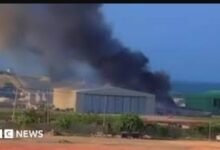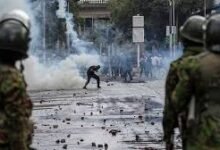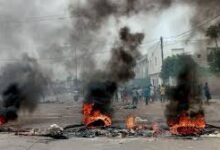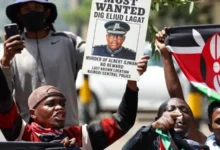South Sudan marks milestone amid stalled progress, growing violence

Despite its two-year anniversary, the unity government in South Sudan faces stalled constitutional progress and ongoing community violence fuelled by armed groups and political groups, a senior United Nations (UN) official told the Security Council on Monday.
“As we enter the remaining 12 months of the transitional period… we are mindful of the accumulation of unfulfilled commitments and the imperative to address them in the limited time at hand,” said Nicholas Haysom, the UN secretary-general’s special representative for South Sudan, and head of the UN mission there, known as UNMISS.
Recalling that February 22 marked two years since the formation of the Revitalised Government of National Unity, the special representative reported that South Sudan’s ceasefire largely continues to hold, and civilian casualties have dropped significantly.
In addition, he outlined significant political progress, including the conclusion of executive appointments at the national and state levels and the reconstitution of the Transitional National Legislature and Council of States.
Some key benchmarks, however, remain unmet, including those related to political and civic space, a secure environment, and the technical and logistical pre-requisites for a free and fair election.
Critically, the constitution-making process bill is still pending, and the process of drafting a new constitution remains stalled, Haysom said.
“Stakeholders agree that the sluggish implementation pace is a cause of disillusionment amongst the people of South Sudan,” said the special representative.
The troubling trend threatens to undermine South Sudan’s revitalised peace agreement, which was signed in 2018 amid high expectations that the accord would put an end to the young nation’s cycles of violence and political strife.
Haysom warned that national frustration was most evident in the high numbers of marginalised young people who have joined tribal militias, further exacerbating the country’s rate of violence.
He said the dire economic situation has also led to a rise in criminal activity and xenophobic hostility towards humanitarians and peacekeepers.
Haysom cited both perennial conflicts, as well as emerging conflicts spanning the borders between South Sudan’s states and regions as evidence that sub-national violence continues to spread in some parts of South Sudan.
Meanwhile, the country’s overall humanitarian needs are projected to continue growing in 2022 – the third consecutive year of flooding – as the situation continues to be exacerbated by insecurity and the prolonged impact of the COVID-19 pandemic. -Xinhua




